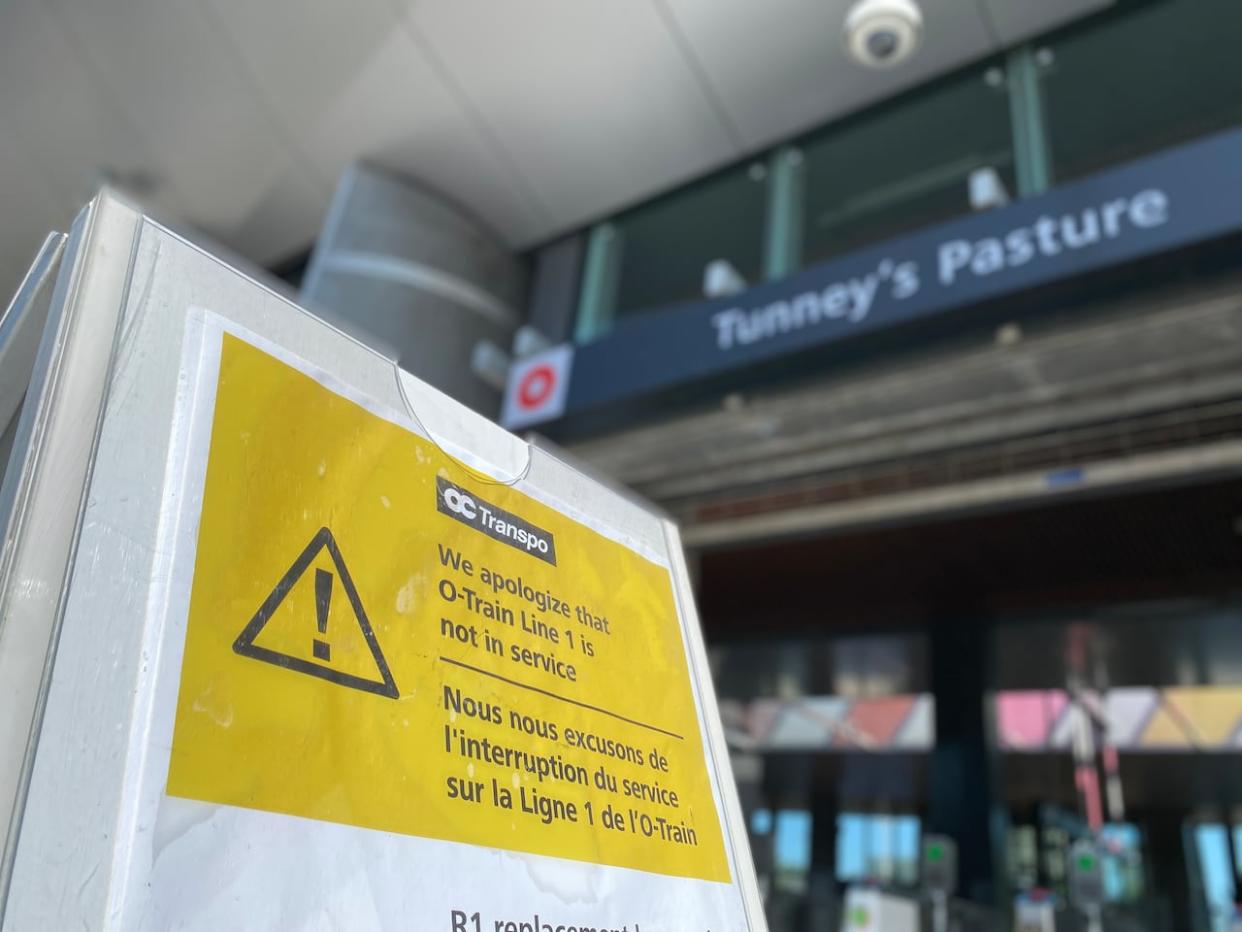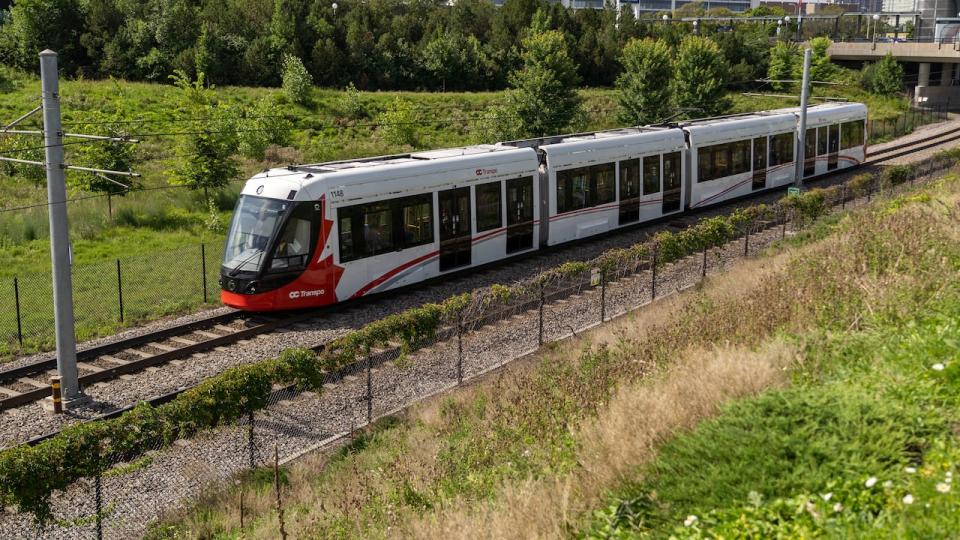City won't say how much it spends on the LRT during disruptions

The City of Ottawa is refusing to tell taxpayers exactly how much they're paying each month to the maintainers of the Confederation Line, citing contract confidentiality.
Rideau Transit Maintenance (RTM) is in charge of ensuring the light rail system runs smoothly through a 30-year contract worth $1 billion. That contract includes maintaining the tracks, stations and fleet of Alstom Citadis Spirit cars — a job it subcontracts to the trainmaker.
Each month, the city pays RTM between $4 and 5 million.
But when the arm of Rideau Transit Group — a consortium of ACS Infrastructure Canada, SNC-Lavalin, and EllisDon — fails to provide an agreed-upon level of service, the city can refuse to pay.
These payments became a topic of discussion during the 21-day full-system outage this summer, which forced OC Transpo to bolster its bus service by cancelling outlying routes and shelling out for driver overtime — at a time when the agency continues to struggle with a staff shortage, multi-million dollar deficit and customer dissatisfaction.
Renée Amilcar, the city's general manager of transit services, gave direct assurances during a media briefing on July 24.
"I want to assure the customers that we don't pay RTG when RTG doesn't deliver the service," she said.
The reality, however, is not that simple.
Settlement complicates matters
Since the system launched in 2019, LRT service has been rife with disruptions and closures. It has experienced problems related to weather, infrastructure, trains and maintenance — including a bearing problem that will still take up to three years to fix.
Then OC Transpo boss John Manconi told reporters two months post-launch the city would not be paying a dollar to RTM until issues were fixed, a statement that soon proved false.

A lone light rail train on Ottawa's Confederation Line Aug. 14, 2023. The light rail line returned from a shutdown with single trains instead of the usual double trains. (Francis Ferland/CBC)
The payment system was designed to "incentivize" the consortium to provide a high level of service and act as the primary method for enforcing maintenance obligations, according to the final report from last year's public inquiry.
But holding back payments for months did little to improve service, with an RTG official telling the inquiry it left the consortium with "no stick" to force improvements from Alstom.
The city went on to file two notices of default alleging RTG was not living up to its obligations: first from the launch and later from the August 2021 derailment.
The city eventually agreed to repay millions of dollars in withheld payments, although full financial details of the settlement remain shrouded in secrecy.
What's also unclear is whether the city changed the metrics it uses to assess the Confederation Line's performance.
LRT's financial future
On Aug. 8, CBC asked for a breakdown of how much the city has shelled out for service each month this year, including for April when freezing rain halted trains across the line for two days.
On Aug. 21, city solicitor David White responded.
Not only will any payments made before the RTG settlement remain confidential, White said in an email, but so will specifics about any money doled out since then.
Releasing monthly details, he wrote, "may result in the disclosure of information that is protected by the confidentiality provisions of the Project Agreement generally."
White went on to write that a yearly aggregate would eventually make its way to council and committee.
While end-to-end service has been re-established, OC Transpo is still relying on single-car trains, and could be for a long time. Amilcar told CBC the city will not pay its full maintenance fee for that period, but it's unclear exactly what the savings will be.
As for the 30-year contract, the settlement effectively locked in the city's future with RTM. But a fresh notice of default could change that.
Coun. Shawn Menard brought up the option on Aug. 9, when Amilcar updated councillors on the most recent shutdown.
"Obviously we've had significant disruption issues again, so is there going to be a notice of default to the operator and the manufacturer of the system?" he asked.
Amilcar responded: "For now, we are working together. We are working very well together. And we will dispute later."


